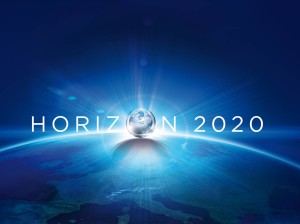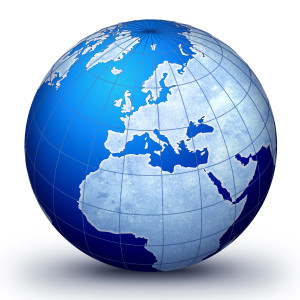 Some of the novelties of the new programme that for the next 7 years aims at favouring the revival of European companies – and not only – on the world market.
Some of the novelties of the new programme that for the next 7 years aims at favouring the revival of European companies – and not only – on the world market.
2014-2020: a single programme
The new European programme launched by the European Commission will group in a single funding programme, for the 2014-2020 period, the initiatives that until December 2013 were programmed by the Framework Programme for the Research and the Technological Development, by the Frame Programme for the Competitiveness and the Innovation (CIP) and by the European Institute for Innovation and Technology (EIT). In this way, all the European funds for research and innovation will refer to a single instrument. In particular, Horizon 2020 is based on three different pillars: Excellent sciences (in which 31.7% of the overall appropriations are lavished), Industrial leadership (with 22.1% of the total balance) and Social challenges (with 38.5% of the total resources). The first, dedicated to the scientific excellence, mainly addresses Universities and Research Centres and aims at strengthening the global position of the EU in the research and innovation field. The second is mainly thought to favour the revival of the European industry and in particular of SME, while the last is intended for the management of social changes, in the attempt of favouring greater application of the scientific researches to everyday reality and, in particular, to the solutions of social problems that concern health, environment and safety.
A simpler course
Horizon 2020 is characterized by a simpler architecture, both from the structural and financial point of view, and for the control procedures that it provides for. Besides permitting a higher integration between research and innovation instruments (EIT, CIP, FO) and the reduction of the number of specific programmes, the new European programme has put at disposal a single whole of simpler and more coherent rules for those that are going to gain access to the available funds.
The advantages are clear: processes of selection and negotiation of the faster projects, the use of a single information access portal, available in the various EU languages, the possibility of accomplishing online procedures and then less bureaucracy for the drawing up of proposals, with an inferior number of controls and verifications. All that with a reduction of the subsidy grant times by a good 100 days, that’s to say from 350 to 250 (8 months).
From the economic management point of view, besides, Horizon 2020 has started a simplification of the funding rules thanks, for instance, to the reimbursement of the real direct costs, to the obligation of presenting time-sheets (daily work tables) for full-time researchers and the presence of a single reimbursement percentage for the total costs of a project.
Finally, concerning the control procedures, the new Programme allows a reduction of the number of certifications demanded on balances and a decrease of the control burdens that weigh on participants, as well as a shortening of the limit period for ex post assessments that diminishes from 5 to 4 years.
 An additional aid for SME
An additional aid for SME
The target of the Board for the Industrial Leadership consists in encouraging enterprises’ investments in R&I in all Europe, both promoting the development of technological strategic or “facilitating” sectors – like nanotechnologies, microelectronics, biotechnologies – and simplifying the access to funds for the most innovative companies. All that paying particular attention to the small and medium enterprises operating on the market, thanks to the creation of a project expressly dedicated to SME, which provides for two important instruments: the first finances feasibility studies and research and innovation projects to encourage them to take part in the European Programme, while the second, called COSME, relying on 2.3 billion Euros, facilitates the access to credit and to the risk capital for SME. They can benefit from these provisions all the small and medium enterprises, oriented to internationalization, and able to develop a project of excellence in the innovation field, on a European scale and with great economic impact. In the specific case, the financial support to SME takes place in three phases, covering the entire innovation cycle: from the feasibility study to the innovation development in the strict sense, up to the successive marketing at national and international level.
Novelties for the enterprises that innovate
Horizon 2020 has provided for more actions supporting innovation, thanks to the starting of activities more specifically oriented to the market. EU is in fact committed to make available more funds for researchers and companies for the implementation of tests, prototyping, demo activities and pilot plants.
Equally incisive will be the support provided by the Programme to the enterprises that invest in research and development activities more than others. SME, in particular, will have new instruments to promote and to realize their business ideas, through the starting of market-driven projects, supported by integrated synergies and architectures (obtained by matching the actions for the SME of 7. FP with the CIP programme and other support initiatives). These instruments will enable small and medium European enterprises to formulate an entrepreneurial or product idea, to develop it in simpler and more strategic way and to launch it on the market, benefitting also from support structures, operating according to typical models of venture capitalists.




